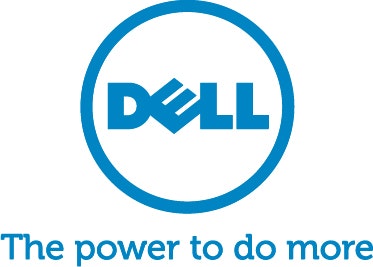In its most recent earnings report, Dell Inc. (NASDAQ:DELL) posted a 79% decline in earnings, as rising tablet and smartphone demand caused traditional PC sales to slump. Even as the company’s sales dwindle, its management is distracted by a major takeover fiasco, leaving Dell’s future as a viable investment deeply in doubt.
Industry Restructuring
Whenever any industry starts declining, investors usually witness considerable restructuring activity, so it’s not surprising to see abundant merger-and-acquisition news coming from the PC industry.
Lenovo is trying to buy up International Business Machines Corp. (NYSE:IBM)‘s server segment, while Hewlett-Packard Company (NYSE:HPQ) has made a number of misguided acquisitions. However, the biggest news in the market has been Dell Inc. (NASDAQ:DELL)’s takeover fiasco. The struggle to control Dell’s future continues, with no immediate end in sight. This uncertainty, combined with a declining PC market, makes Dell a poor investment and supports the argument that investors should sell the stock.
Industry Revival
Dell Inc. (NASDAQ:DELL) has no significant stake in the handheld industry, which is showing phenomenal growth. In the first quarter of 2013, the PC market fell by 13.9%, as opposed to the 7.7% drop the market expected. The entire PC industry was looking towards Microsoft Corporation (NASDAQ:MSFT)’s Windows 8 to spark a revival in sales. The industry expected that Windows 8 would start an upgrade cycle that would benefit both semiconductors and OEMs.
Windows 8 has thus far failed miserably due to a number of factors, including lack of hardware to support its features and lack of consumer interest in premium PC products. The consumers have been more interested in upgrading their handhelds than their PCs. According to recent reports, the software giant is already planning to launch Windows 8.1 later this year, probably in October. The industry is mostly concerned about the price tag on the newer version, as the price was a crucial factor behind Windows 8’s failure. Dell Inc. (NASDAQ:DELL) also launched various Windows 8 products, but as the quarterly revenue and profit decline shows, Windows 8 has failed to revive Dell Inc. (NASDAQ:DELL)’s sales.
Takeover Bid
In the last few months, Dell Inc. (NASDAQ:DELL) has been in the news constantly due to takeover speculation. It all started with Michael Dell and Silver Lake proposing to take the PC giant private in a $24.5 billion deal. The offer was met with a harsh reaction from a large chunk of the investing community. The offer price was perceived as underwhelming, which instigated new players to enter the buyout struggle. The Michael Dell and Silver Lake partnership has tried to improve the offer, but all attempts at negotiations have been met with a stone wall.
Last month a key player in the takeover fight, Blackstone, pulled out of the race. The company cited the weak PC market and declining sales as the primary reason behind their decision. The primary hindrance to Silver Lake and Dell’s offer is the activist investor Carl Icahn. He is pushing the Board to pay a onetime $12 dividend to shareholders, which will cost the company approximately $21 billion.
There seems to be no immediate end in sight to the confusion around the buyout. Dell’s board has asked Carl Icahn to elaborate on his future vision for the company. Meanwhile, the company continues to suffer from a poor PC market, and in the first quarter of 2013 it has reported a 79% decline in profits.
Chinese Threat
The Chinese factor has been a decisive one in the PC industry. The Chinese OEM Lenovo has continued to prosper while the entire industry suffers. The company has built itself as a strong player in growing Asian markets, and particularly dominates the Chinese PC market. According to recent data by IDC, Lenovo is the only major PC manufacturer that has reported no decline in shipments. The company has emerged as the second largest OEM in the world, behind Hewlett-Packard Company (NYSE:HPQ), and has increased its market share to 15.3%. In doing so, Lenovo has removed Dell from the position of the second largest PC manufacturer in the world.
The rise of Lenovo is more evidence of the maturity of the PC industry and the tough road ahead for Dell Inc. (NASDAQ:DELL). The competition is shifting to cost efficiency as compared to innovation, and it is common knowledge that Chinese companies have a clear cost advantage due to cheaper inputs. There was speculation that International Business Machines Corp. (NYSE:IBM) will sell its low-end server division to Lenovo. The deal did not go through because the Chinese giant wanted to pay a lower sum for the segment.
Bottom-line
There seems to be no immediate end to the Dell Inc. (NASDAQ:DELL) takeover struggle. Meanwhile, the entire PC industry continues to slip with no immediate respite in sight. The failure of Windows 8 and the rise of Lenovo shows that the PC is no longer a premium product that can garner high margins. Michael Dell and Silver Lake’s bid seems to be in the better interest of the company, while Carl Icahn is just looking for a quick pay off. The declining profits, industry maturity and the buyout fiasco are responsible for making Dell an extremely unwise investment. Therefore, investors should stay away from the stock because if more players fallout from the takeover talks, the effect on its share price will be catastrophic.
The article Time to Jump the PC Ship originally appeared on Fool.com and is written by Red Chip.
Red Chip has no position in any stocks mentioned. The Motley Fool owns shares of Microsoft. Red is a member of The Motley Fool Blog Network — entries represent the personal opinion of the blogger and are not formally edited.
Copyright © 1995 – 2013 The Motley Fool, LLC. All rights reserved. The Motley Fool has a disclosure policy.






